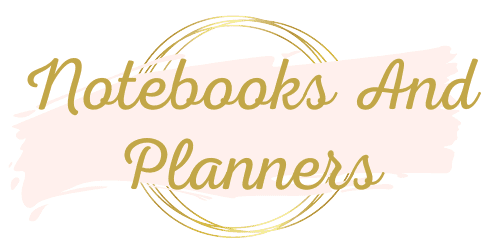Last Updated on November 7, 2023 by Jen
Reflective writing is like having a deep chat with yourself about your experiences, feelings, and reactions. It’s like taking a step back and talking about what you’ve been through, thinking about how it made you feel, what you learned from it, and how it affects your life and the world around you. It usually starts with painting a picture of what happened, then diving into the emotions and lessons that came up, and wrapping up with the bigger picture. It’s a great way to really connect with what you’re learning and it can help you grow as a person.
If you want to create permanent personal transformation in your life, reflective writing is one of the most powerful tools you can use. Through reflective writing, you can gain insights into your personal stories and how they have impacted you. You also gain insight into your personal beliefs and how they are helping you or holding you back.
This process of reflection and journaling can help you to see clearly what needs to change in your life in order to create the life you want.
How To Change Your Life With Reflective Writing
Reflective writing can be an extremely useful tool to help you make positive changes in your life. By taking the time to reflect on your experiences, both good and bad, you can learn a lot about yourself and what works for you and what doesn’t.
Additionally, reflecting on your past can help you to set goals for the future and figure out how to best achieve them.
Of course, it’s not always easy to be completely honest with yourself, but the more honest you are, the more helpful reflective writing can be.
If you’re not sure where to start, try focusing on a specific event or period of time in your life that was particularly challenging or meaningful.
Or, pick a topic where you want to experience personal transformation and find journal prompts to help you reflect on that area of your life and how you can improve it.
How To Make The Most Of Reflective Writing
Want to make the most out of your reflective writing? Here are some tips to ensure you are getting everything you can out of it.
1. Set aside some time each day for reflective writing.
If you’re like most people, your days are jam-packed with activities. From the moment you wake up to the moment you go to bed, there’s hardly a moment to spare.
So why set aside time each day for reflective writing? Because it can provide benefits that you won’t find anywhere else.
Reflective writing helps you to slow down and process the events of the day. It allows you to reflect on your successes and failures, and to learn from your experiences. It also helps to boost your creativity and problem-solving skills.
If you want to make the most out of your reflective writing, set aside time each day to do it. You’ll be glad you did.
2. Use prompts or questions to help you get started.
One way to make the most out of reflective writing is to use prompts or questions to help you get started. By using prompts, you can break down the task of reflective writing into more manageable pieces.
For example, if you want to reflect on your life at the end of the year, you might start by answering a question such as “What was the most challenging experience of my year?” or “What am I most grateful for in the past year?” As you reflect on your experiences, you may find that patterns begin to emerge. This can help you to see yourself and your life in a new light, and it can also provide valuable insights into ways that you can improve your life.
Ultimately, using prompts or questions is a helpful way to get the most out of reflective writing.
We have a lot of journal prompts for you at Notebooks And Planners. If you want us to create an article with journal prompts that we haven’t covered, let us know!
3. Write freely and without judgment.
The best way to get the most out of reflective writing is to write freely and without judgment.
This means that you should not worry about making mistakes or whether what you are writing is good or bad. Just let the words flow out of your mind onto the paper and see what comes out.
You may be surprised at the insights that you gain about yourself when you just let go and write without worrying about perfection.
This type of writing can also be very therapeutic, so if you are feeling stressed or overwhelmed, it can be a great way to release some of those emotions through pure honest writing.
4. Be honest with yourself.
You can’t write freely unless you are being honest with yourself.
You can only benefit from the process if you’re honest with yourself about your thoughts and feelings. That means being willing to explore the darker parts of your experience, as well as the positive ones.
It can be tempting to gloss over the negative aspects of a particular event, but doing so will ultimately limit the insights you gain from reflection.
If you want to truly improve your understanding of yourself and the world around you, be honest in your writing and give yourself permission to be vulnerable. Only then can you hope to achieve the full potential of reflection.
5. Allow yourself to feel all of your emotions as you write.
When it comes to reflective writing, it is important to allow yourself to feel all of your emotions. This can be difficult, especially if you are trying to process a traumatic event or painful memories. However, repressing your emotions will only make it harder to heal and move on.
Instead, try to embrace your feelings and use them as a source of strength.
Reflective writing can be a powerful tool for self-discovery and growth. By facing your emotions head-on, you can begin to understand them better and find new ways to cope.
So, next time you sit down to write reflectively, don’t be afraid to let your emotions flow. You may be surprised at what you learn about yourself in the process.
6. Look for patterns and insights in your reflective writing.
Good reflective writing usually involves four key ingredients: an event or experience, your thoughts and feelings at the time, what you have learned from the experience, and how this learning can be applied in the future.
When you are reflecting on an event or experience, it can be helpful to ask yourself some questions.
- What happened?
- How did you feel at the time?
- What did you learn?
- AND what connections can you make with other things that have happened to you?
By looking for patterns and insights in your reflective writing, you can deepen your understanding of yourself and your life experiences.
In addition, you may be able to find ways to apply what you have learned in the future.
7. Use what you learn to make changes in your life.
Reflective writing can be an invaluable tool for personal growth. By taking the time to reflect on your experiences, you can gain a greater understanding of yourself and the world around you. What’s more, you can use this new-found knowledge to make positive changes in your life.
For example, if you find that you are frequently getting into arguments with your family, reflective writing can help you to understand the root cause of the problem. Once you have identified the source of the conflict, you can start to work on making changes that will help to improve your relationships.
In short, reflective writing can be an immensely powerful tool for personal growth – but it’s very important to use what you learn to make positive changes in your life.
8. Rinse and repeat! Reflective writing is a lifelong journey, not a one-time event.
It won’t be hard to use reflective writing often in your life. Once you experience the benefits from it, you will make it a tool that you use to learn, grow, overcome, and master anything.
And like any journey, the reflective writing process is never really over. You will continue to learn and grow throughout your life, so keep reflective writing as a part of your regular routine.
Rinse and repeat! Reflective writing is a lifelong journey, not a one-time event.
9. Share your reflective writing with someone you trust.
Sharing your reflective writing with someone you trust can be a great way to get feedback and insights into your experiences. It can also help you to connect with others who have had similar experiences.
If you’re not sure where to start, try joining a reflective writing group or sharing your writing with a close friend or family member.
If you are taking a course, and they don’t include sharing your reflective writing as part of the course, create a group where you can talk to other people about what you’ve written and they can share what they’ve written with you.




